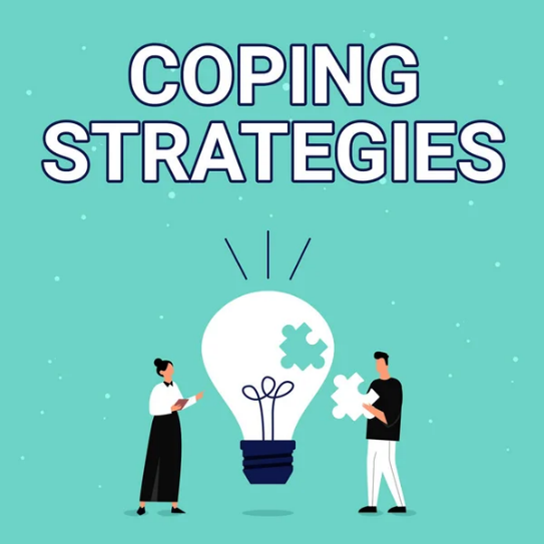COVID Chat series 2020 : Coping strategies for the home bound (April 2, 2020)
- Home
- COVID Chat series 2020 : Coping strategies for the home bound (April 2, 2020)
Thursday, 2 April 2020

COVID Chat series 2020
Amidst COVID, the Centre took part in ‘Chat’ series on the following topics exploring the impact of COVID in the industry. Dr. Dorothy Chan, Head of Centre for Logistics and Transport organized ‘Chat’ sessions during COVID in 2020 with Women in Logistics and Transport (WiLAT) in the Chartered Institute of Logistics and Transport (CILT) such that the industry could respond to the challenges by learning from each other.
- Impact on Human Behavior and Society (March 26, 2020)
- Coping strategies for the home bound (April 2, 2020)
- Technologies enables social distancing (April 9, 2020)
- Farm to store logistics impact (April 23, 2020)
- PPE and Hygiene Best Practice (April 30, 2020)
- Post COVID-19 Passenger Transport for a safe return (May 21, 2020)
- Re-opening of airports and Preparation (May 28, 2020)
- Port Re-opening and Maritime Industry (June 4, 2020)
The chat sessions were organized by Women in Logistics and Transport, a forum under the Chartered Institute of Logistics and Transport.
CHAT ON COVID-19: Coping strategies for the home bound
Thursday, 2 April 2020
As news on the spread of COVID-19 develop, there is grave concern that there will be more locking down of cities and increasingly tighter social distancing measures. A sharing of the video produced in Japan shows that the virus could stay in the air in small particles before dropping to the ground or attached to surfaces. Hence, wearing face masks and cleaning of hands after touching objects could help to minimize the chance of infection.
In the storm of infection and death sweeping through cities, some cities may find it necessary to lock down to reduce contacts and cross infection. In addition to strict infection-control measures, this move will reduce the pressure on the medical system where hospitals could be running out of beds and ventilators.
However, this could have a serious impact on business and more importantly how to maintain essential supplies of necessities to households that cannot go outside their homes. WiLATs are learning from each other and understand that for cities under lock-down, on-line purchase and delivery have become an important resource. With restriction on within city movements, there is a grave impact on transport of commodities for local consumption and this requires strong government intervention and co-ordination centrally to provide food and supplies.
Essential workers, however, are allowed to work, including those in important industries and also farms which form an important part of the food chain. It is important to be able to establish a safe and hassle-free transport corridor to allow the transport of food and medical supplies to the right place and at the right time. Our supply chain professionals could contribute to this by formulating delivery strategies and effective stock taking mechanism. How technology could help will be the focus of WiLAT in third chat session.
Social distancing
For cities which have not imposed lock-down, there are strict social distancing measures. Some measures could be effective to achieve containment such as closure of schools, government offices, restaurants, cinemas etc. There is more work from home, voluntary stay at home, cancellation of mass gathering and improve personal hygiene.
A new style of life has emerged. General public reaction during the initial period is to avoid crowded places, use face masks, wash hands more often, avoid touching common objects, check out for symptoms and cutting down of social activities. Lately, meals delivery is preferred over eat outs.
COVID-19 patients may not display symptoms until 5-6 days. Containment also means being able to test infected cases early and isolate the patients and their close contacts and put them under quarantine. The aim of containment is drive the number of infected cases to zero ultimately and the ability to administer COVID-19 test timely is instrumental to containing the spread of cases within the community.
Community preparedness
The community must work hand-in-hand to prevent the spread of the virus. Both Singapore and Hong Kong have shown a rise in the number of cases at around end March from people returning overseas. To adapt to the situation, enhanced social distancing measures have been put in place and this requires discipline and community awareness of the roles they play in protecting our health service and our health care workers.
In Pakistan, there are scenes of generosity to offer food to Pakistanis as many people on the street have no shelter and are daily wage earners. City lock-down will mean no money and no food and while on one hand, the country is combating COVID-19, there is also grave concern on poverty. So Pakistanis are bounding together to assist the less fortunate. The coronavirus is revealing the world’s culture and how different communities interact with government decisions in the battle against the virus. When we are having a quiet period at home, we should pause and think how we can help and care for each other.
Dorothy Chan
WiLAT Global Chairperson
Head, Centre for Logistics and Transport, HKU SPACE





